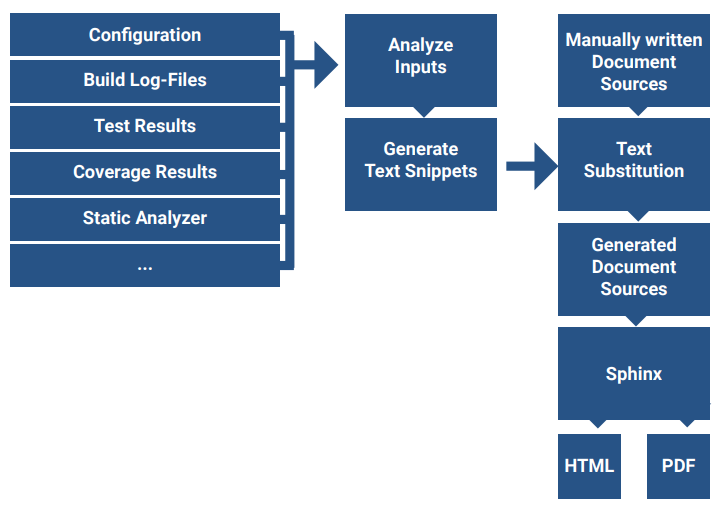RTEMS Qualification Data Packages
| SoCs1 | BSP2 | QDP | |
|---|---|---|---|
| fentISS | XtratuM / XNG Hypervisor23 | ✔/on request | on request |
| AMD Xilinx | Zynq 7000 Series Zynq Ultrascale+ MPSoC and/or RFSoC Versal Adaptive SoC |
✔ ✔ ✔ |
✔ ✔ ✔ |
| Gaisler | GR712RC GR716A and GR716B GR740 GR765 Noel-V UT699/UT699E/UT700 |
✔ on request ✔ on request ✔ ✔ |
✔ (public) on request ✔ (public) on request on request on request |
| Microchip | PolarFire SoC SAMRH707 – Radiation Hardness SAMRH71 – Radiation Hardened SAMV71Q21RT – Radiation Tolerance SAM V, SAM E & SAM S MCUs |
✔ ✔ ✔ ✔ ✔ |
on request on request on request on request on request |
| NanoXplore | NG-ULTRA | ✔ | on request |
| Teledyne | LS1046-Space Products based on NXP Layerscape QorIQ P-Series and QorIQ T-Series |
on request on request ✔ |
on request on request ✔ |
| Texas Instruments | TMS570LC4357, TMS570LS3137 | ✔ | on request |
| Vorago | VA 41600, VA 41620, VA 41628, VA 41629, VA 41630 |
on request on request |
on request on request |
1) Other SoCs on request
2) Includes development tools support
3) Possible hosts and configurations on request
| Boards & Systems | BSP | QDP | |
|---|---|---|---|
| DSI | OBC (LEON-3FT dual core) | on request | on request |
| ZIN | SBCFA1000 / SAMRH71 SBC | on request | on request |
| Drivers / Interfaces / Features | BSP | QDP | |
|---|---|---|---|
| POSIX API, OpenMP, LwIP | ✔ | on request | |
| Drivers (e.g. CAN, SpaceWire, MIL-STD-1553) | ✔ / on request | on request | |
| NASA cFS, micro-ROS, Klepsydra AI | ✔ / on request | ✔ / on request |
Development Tool Support
All our products come along with comprehensive support to integrate RTEMS into a customer specific development workflow (e.g. Visual Studio Code, Github and Gitlab structures, continuous integration using simulators and real hardware) as well as support for advanced diagnose tools like Trace Compass to optimize scheduling or time critical procedures.
Further Advantages of our QDPs
- Customization of the QDPs to your specific circumstances
- Coordination of the source code with the RTEMS community and the RTEMS community git repo
- RTEMS code bug tracking
- Gnu toolchain bug tracking
- Long-term availability and maintenance
- Fast development and qualification processes
FAQ
How our QDP is produced
Safety Certification with Turbo
In many domains, safety certification is necessary, for example in aerospace, medical technology, and automotive engineering. This process is very time-consuming, since all possible system states and reactions must be mapped and all possible errors must be handled in a controlled manner. Certification often costs much more effort than the actual programming — and it is therefore rarely updated. Open source software in contrast, however, stands for rapid development and fast bug fixing.
embedded brains, with the support of ESA (European Space Agency), has developed a maximally automated qualification process. Based on a complex concatenation of definitions, requirements and individual tests, which communicate by means of a formalized “language”, the qualification can be performed largely automatically. This does not replace formal definitions and test procedures, but it simplifies delta qualifications enormously. This means that adaptations and additions to the source code can be carried out very quickly — and thus cost-effectively.



